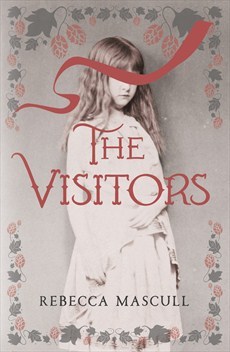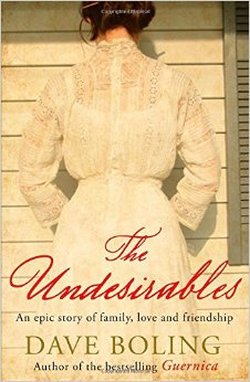
The Visitors is a coming-of-age story that begins on a hop farm in late Victorian England. Liza, deaf-blind from the age of two, is like a wild animal until Lottie, through laborious hand signing, gives her the gift of language. Travelling to the oyster farms of the Kent coast as a child, and to South Africa as a young woman, Liza learns about first love and the limits and compensations of her disability. Since infancy, she has communicated with ghosts in her head; through them she finds a way of saving those who have saved her.
While I enjoyed this novel, I had a sense that it was trying to cover too much, and I found Liza’s character most interesting when she was locked into her own world, raising questions about what it means to be without language, what makes us human. But it was heartening – in contrast to those novels depicting duplicitous female friendship – to spend time in the company of strong female characters who were prepared to travel great distances to support each other and those they loved. In both style and its attention to historical detail in the lives of ordinary people, Rebecca Mascull’s debut novel was reminiscent of the work of Tracy Chevalier, making her a writer to watch for the future.

I know she was thinking of ways to find strength and pass it along to us. Nothing is unbearable, praise be to God. She had said that many times when we first got to camp. But less often since. (p255-256)
As in A History of Loneliness, I admired how the novelist is even-handed in his treatment of a tragic situation; for example, in the character of a guard who feels almost as imprisoned as the Boers. A teenage narrator seems ideal to reflect the different nuances of camp life and the painstaking research behind it all serves as scaffolding, never intruding on the telling of an engaging story.
Thanks to Hodder and Stoughton Publishers for my review copy of The Visitors and to Picador for The Undesirables.
I’ll finish off with my response to the latest flash fiction challenge, which is to write a 99-word story that has an expectation missed or met. Initially I thought I’d focus on arriving at an early concentration camp expecting food and shelter to find disease, hunger and mud. But then I had an impulse to defy my own, and perhaps your, expectations of a downbeat story by returning to the character of Liza in The Visitors in her early years, long before she travels overseas:
She was a handsome child, but what were looks when she’d never see her own face reflected in the glass? Those shell-like ears so completely blocked she’d never hear her own screams? Locked in darkness and confusion, our daughter grew wilder with each passing year.
We’d planned to commit her to the insane asylum, when Lottie began tracing shapes on her palm. Some strange occult practice, we thought, and made to lead the child away. But these were letters, words, an entire language written on the hand. Our daughter was reborn, civilised. God had granted us a second chance.





















 RSS Feed
RSS Feed





















